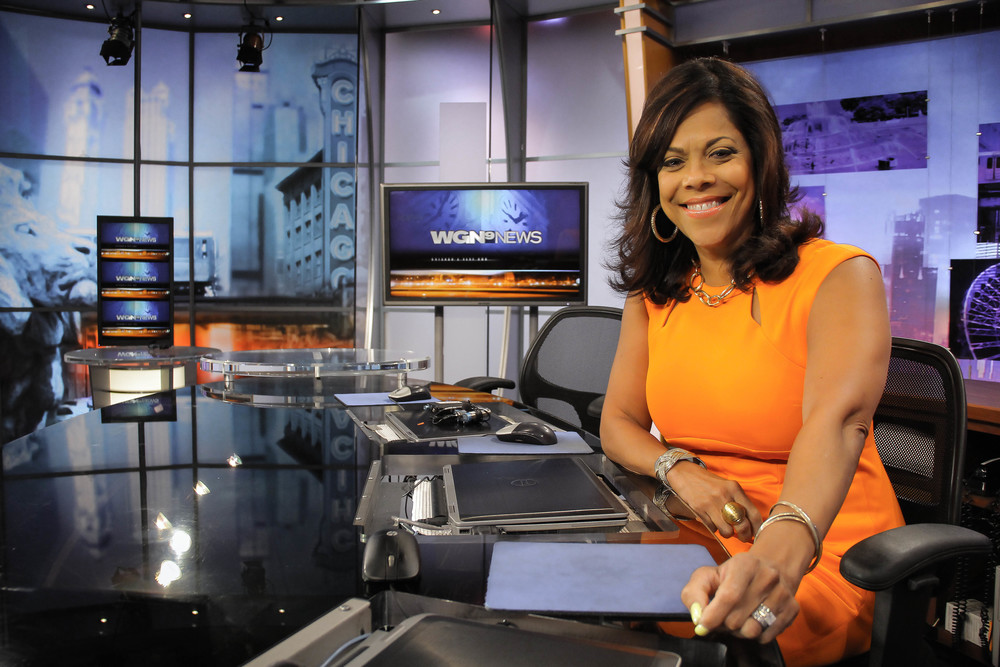knew what she wanted to do from a very early age. “I was always rearranging my parents’ home,” moving chairs and furniture around just so, she recalls of her childhood. She would later combine her love of interior design with her passion for environmental awareness in a line of home goods that helps asthma and allergy sufferers live sniffle—but not style—free.
“While others are focused only on beauty, I am focused on something much deeper,” she explains. “You have a beautiful space, but will you be wheezing and sneezing?’”
Since she launched her line 15 years ago, Wilson has accumulated quite a few accomplishments under her belt as a nationally recognized eco-friendly and healthy space interior designer. Her line has expanded from residential to commercial work, and she’s the first woman to license her brand to a line of eco-friendly kitchen cabinetry. You can find her line of textile products in Bed, Bath and Beyond, with a line of quilts slated to hit shelves this December.
Building wasn’t always easy, but it’s a journey Wilson describes as both “exciting and amazing.” Wilson talks with mater mea about some of the lessons she learned along the way.
Chasing a dream is always hard, because you have a vision that others may not understand.
How did you get your start in the eco-friendly interior design industry?
I was fortunate to have the financial windfall to do what I’ve always dreamed and wanted to do. In any industry, it is important to find your niche and choose a specialty. My eco-friendly specialty was inspired because I am an allergy and asthma sufferer. According to the Asthma and Allergy Foundation of America, about 50 millions Americans suffer from allergies—and 20 million suffer from asthma. These are huge numbers, and nobody was focusing on this niche. I could have done interior design or project management, but I decided to focus on creating a brand around hypoallergenic and wellness lifestyle. This has created a niche for us in the industry for families and for those suffering with the debilitating illnesses of asthma and allergies.
Did you have a clear vision of where you wanted to go in your career journey?
Oh goodness. (Laughs) I did a business plan for every five years into the future. There were some goals we accomplished [that] I had no idea we would accomplish because they were not in the business plan. Every time someone does a business plan, I believe they should also do what I call a bucket-list plan. Items on your business plan are things you know you can accomplish within the set amount of time you have designated for your goals. A bucket-list plan [covers] things you may think are impossible to achieve, but are still on the horizon. If the opportunity to fulfill an item on the bucket-list plan presents itself, you might be in a good position to say yes.
What were the challenges and obstacles you navigated as you built your business, and how were you able to overcome them?
Chasing a dream is always hard, because you have a vision that others may not share or understand. I wanted to build a brand, and many people do not understand what that means. It is a singular dedication to creating more than just a service-oriented business; it means that you define what your services are [and] what you stand for.
Being a black woman is an advantage, not a disadvantage.
One of my challenges was to be and remain authentic to my definition. For example, telling someone, “No, I cannot do that segment—even though it will put me on a national news program—because you want me to design a doghouse and be around dogs, and I am allergic to dogs.” Someone else might decide to take on the segment and take some Claritin. However, because the service does not align with my brand, I decide to be authentic to my definition and pass on the national news opportunity including all the benefits that come with it.
As a black woman, there have been moments when people doubt me and have put doubt in my mind. They might wonder how I got a particular job or they might say, “Do you really think you can do that?” However, I think sometimes being underestimated is the best position to be [in] because you know what you can accomplish and they don’t. You just have to work to achieve that. Being a black woman is an advantage, not a disadvantage. People remember you when you do a great job.
How do you move beyond those moments of doubt—when others doubt you and when you doubt yourself?
All entrepreneurs know there are moments when we are moneyless, some cases homeless, and in other cases hopeless. You have to recognize that these moments will come, and when you have painful challenges, you have to believe with faith you can achieve. Two books, ” target=”_blank” rel=”noopener noreferrer”>The Dream Giver by Bruce Wilkinson have been my inspiration in those seasons. I have read them over and over again. Both of those books, in addition to faith, have helped me through the darkness.
What is the greatest accomplishment of your career?
I have had many amazing experiences, from projects for President Clinton’s home office to travelling to beautiful places and spaces around the country. I have had audience members [tell] me that I have been very helpful to their family’s health. All those moments over 15 years have made me appreciate this opportunity because it means for 15 years I have provided for myself and my family. It means I have lived in the highs and lows of that journey and I have not given up. From 1999 with a big fat bank account, to a low of a $1.23 a few years later, after putting everything into the business, to now over $35 million in retail sales for the Robin Wilson Home brand. Those are the most exciting moments to look back upon.
To build the kind of career you have built over the years requires a lot of sacrifice. What lifestyle changes or disciplines have you had to implement through the years?
There are three specifics sacrifices I can point to that were hard, but had to happen. I owned an apartment on the Upper East Side, but I sold it to my best friend for cash flow. For 18 months while I built my company, my best friend let me to sleep on the floor on an air mattress in the apartment I used to own. Another moment was when I had to lay off an employee whom I believed in, because we did not have the cash flow at that time to maintain the operating cost.
Another sacrifice I had to make was saying no when friends invited me to places that I just could not [afford]. You are building your business and paying your vendors, but sometimes you have to neglect paying yourself. On the outside, it looks like you are doing extremely well, and yes, your company is doing well, [but you’re] paying down all the startup debt. You still can’t pay yourself. This is part of that entrepreneurial journey: You pay everyone else and you can’t pay yourself, but you get up every day and say, “I love what I do.”
It is better to try than to say ‘I wish I had done it,’ and I want to teach [my daughter] the value in that.
As a working mother, what are the lessons you want to teach your daughter about work and building a career?
I want her to do what she loves. I want her to chase a dream and try to be the best at that dream, whatever it is. If she wants to be a tennis player, then we are going to go to the best coaches and she is going to give her best. If she wants to be an artist or a musician or a scientist or an astronaut, we are going to give her those opportunities. I want her to know it is better to experience the dream and say “I don’t want to do it” than to wish that she had the chance to do it. That also applies in business—taking the initiative matters. It is better to try than to say “I wish I had done it,” and I want to teach her the value in that.
What would you tell a younger 20-something Robin about life and building a successful and happy career?
I would tell a younger me to find a supportive mate who believes in you and cares for your heart and soul. A mate who is not focused on what you do, but who you are. The person in your life can [affect] you and create or take energy. Be very careful about that person.
What advice would you give to mater mea readers who want to go into business for themselves or excel in their chosen career?
Find a mentor, educate yourself, start from the bottom, and work your way up. Do not be too proud to get an internship or an unpaid position to explore from the bottom up. This is the only way to know if your chosen field is the field you want to be in. Being an entrepreneur taught me that I have to take on a lot of roles. If I’m not able to fix the coffee machine and the printer or fold papers and call the tech guy, then I cannot run my business. Do your best to know all the tasks you are required to do on the job no matter how menial.
Read more of our How I Did It career profiles for great career advice from women who have made it. Would you like to share your career story with us? Email info@matermea.com.

















